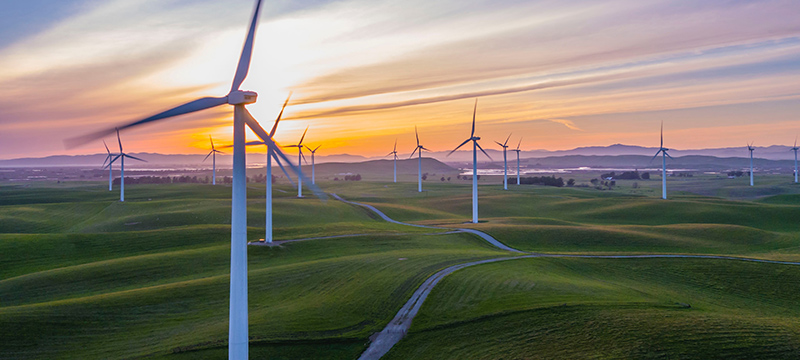The transition to sustainable energy systems is one of the most significant challenges of our time, requiring innovative technologies to optimize efficiency and integration at the enterprise level across numerous sectors. Among the most transformative technologies in this regard is the Internet of Things (IoT), which is continuously reshaping the landscape of energy management. By enabling more efficient monitoring, management, and optimization of energy, IoT technologies are pivotal in advancing the energy transition across multiple fronts by enabling more efficient monitoring, management, and optimization of energy.
Secure and Efficient Energy Systems with IoT
Secure connectivity is essential in today’s energy systems, providing the backbone for reliable and resilient energy management. IoT technology augments this foundation by facilitating safe, real-time monitoring and data collection from various distributed energy resources. This secure data transit is crucial for protecting systems against cyber threats while ensuring that energy operations are efficient and adaptable to real-time conditions.
Furthermore, IoT’s impact extends significantly to optimizing renewable energy sources such as solar power. Through IoT-enabled devices, energy providers can perform real-time monitoring and predictive maintenance, which are vital for minimizing downtime and improving grid stability. These systems utilize advanced analytics to forecast energy output and adjust grid operations dynamically, enhancing the integration of renewable resources like solar and wind. Despite the cybersecurity challenges and the complexity of achieving seamless interoperability among diverse technologies, the robust capabilities of IoT provide a solid foundation for overcoming these hurdles and maximizing the efficiency of solar energy solutions.
Empowering Consumer Engagement and Decentralized Systems
IoT-driven advancements in the energy space extend beyond industry-level operations; they also directly impact everyday consumers. These technologies revolutionize how energy providers operate and transform how consumers conceptualize, interact with, and manage their energy usage.
By delivering detailed consumption data directly to consumers, IoT devices empower individuals with the knowledge to make informed decisions about their energy use through real-time monitoring, personalized insights, and demand response capabilities. These factors drive behavioral changes and foster greater energy efficiency and sustainability at the consumer level.
Additionally, IoT plays a crucial role in facilitating the rise of decentralized energy systems. These systems allow for more localized management of energy resources, reducing dependencies on centralized grids and enhancing community resilience to energy disruptions. IoT enables efficient management and coordination of distributed energy resources (DERs), such as residential solar panels and community battery storage, providing a seamless flow of energy and real-time adjustments based on local consumption and production patterns.
Navigating Challenges and Seizing Opportunities
While IoT introduces transformative potential for the energy sector, it also brings challenges, particularly in cybersecurity and data privacy. These concerns are paramount as energy systems become increasingly interconnected and reliant on digital infrastructures. However, the strategic implementation of IoT can address these challenges by enhancing system security and reliability through continuous monitoring and advanced cybersecurity protocols.
The opportunities for growth and improvement are vast. IoT technologies not only enhance operational efficiencies but also support crucial sustainability goals by more effectively integrating renewable energy sources into the grid. Moreover, they enable predictive maintenance capabilities that reduce downtime and operational costs, all while improving the reliability and lifespan of energy equipment.
As the energy sector continues to evolve, integrating IoT technologies will play an increasingly vital role in shaping a sustainable future. IoT is at the heart of the energy transition by enhancing grid stability, optimizing renewable integration, and empowering consumers. For energy stakeholders, investing in IoT is a technological upgrade and a strategic move towards a resilient, efficient, and sustainable energy framework, promising a brighter future for global energy systems.
The post How IoT Is Revolutionizing the Energy Transition appeared first on IoT Business News.

